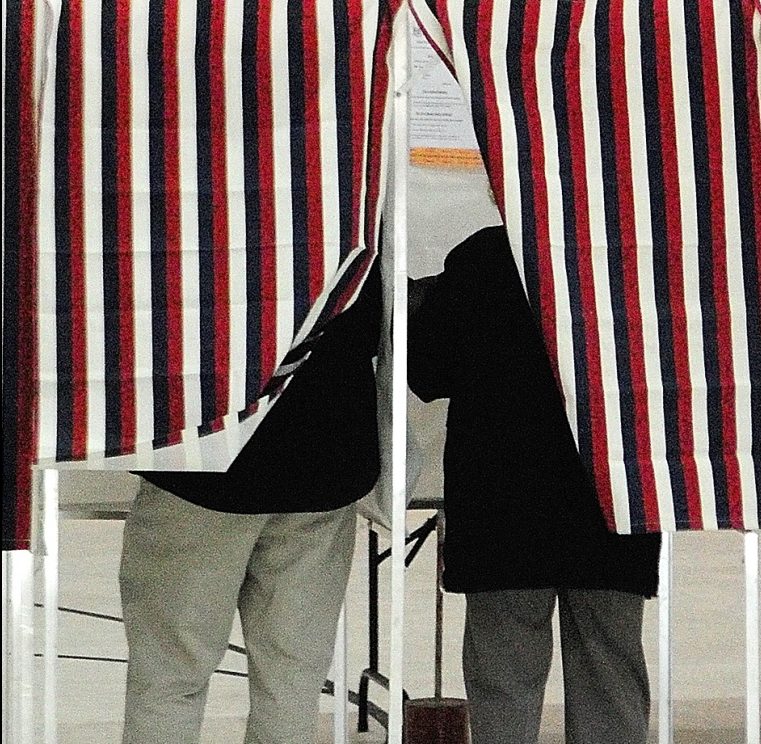What ‘yes’ on Question 1 means
Ranked-choice voting has already been approved by Maine voters. and it is clearly the voting system an overwhelming majority of Maine voters want. A “yes” vote on Question 1 on the June 12 ballot will make ranked-choice voting permanent. The first part of the question asks: “Do you want to reject the parts of a new law that would delay the use of ranked-choice voting?” The rest just summarizes the delay-and-repeal law passed by the Legislature. Clearly worded, the question would read: “Do you want to keep the current ranked-choice voting law that elects representatives with a majority of the vote?”
It really is that simple — vote yes on Question 1 to have more choice in electing who represents you.
All registered voters, including the unenrolled and those who register on Election Day, can vote on Question 1. Unenrolled voters, or independents, make up 36 percent of Maine voters, and they overwhelmingly support ranked-choice voting. Independents, want your voice heard? Get out and vote to ensure ranked-choice voting passes.
Arthur Brooks, CEO of the conservative think tank American Enterprise Institute, said in a recent interview that “70 percent of Americans are dismayed at what is going on in this country. They don’t like the polarization, bitterness, disrespect, hatred, and contempt … We are all looking for better leaders and we must stand up to the politicians on our own side” who promote polarization, disrespect and contempt.
Ranked-choice voting will reduce political polarization, disrespect and contempt. It will prevent drastic political shifts from far right to far left every four years. It will elect representatives who have support from a majority of the voters, and encourage politicians to campaign on issues so you, the voter, will know who the candidate is and how they plan to support your values. It will reduce negative campaigning, because politicians know trashing your first-choice candidate will not encourage you to make them your second choice.
Ranked-choice voting will not force you to vote for someone you don’t like just to keep their opponent from getting elected. It will not elect representatives who only 35 percent of the voters choose — and 65 percent of voters didn’t like. It will not polarize elections, making the polling place feel like a war zone where your relatives, friends and neighbors become the enemy because they didn’t vote for your candidate. And it will not hand votes to a candidate based simply on their party affiliation.
Former Republican state Sen. Peter Mills supports ranked-choice voting because “it would improve the likelihood that you would be nominating your strongest candidate for office in the general election, which would strengthen (your party’s candidate in the November election). I ask you, what party does not want to elect their strongest candidate?”
Sen. Shenna Bellows, a Democrat from Manchester, said, “A lot of the opposition we’ve seen to ranked-choice voting (from) the Legislature is rooted in opposition to citizen referenda in general, but the Maine Constitution explicitly says that our power as legislators is derived from the people and clearly lays out the citizen’s referendum and people’s veto processes” and “I simply disagree that the Legislature knows better than the collective will of the voters.”
Some politicians oppose ranked-choice voting because they will have to work harder to get elected. Ranked-choice voting requires politicians to get 50 percent of the vote, and to do that a candidate needs to understand and campaign on values and ideas that resonate with a broader segment of the voters. This is not easy to do. Think of how you may struggle to understand the values and ideas of some voters, and you will see why some politicians oppose ranked-choice voting.
Amazingly, one political party that opposes ranked-choice voting actually uses a very similar system to elect their party officers with a majority vote. Sadly, even though they a ranked system to get good party government, they want to deny you ranked-choice voting to get good state government.
Ranked-choice voting lets you vote for your preferred candidate without fearing you will help the candidate you like the least get elected. Ranked-choice voting elects politicians who have a majority of support from the voters. That’s what it does. I urge you to vote “yes” on Question 1.
Tom Waddell is president of the Maine chapter of the Freedom From Religion Foundation.
Send questions/comments to the editors.



Comments are no longer available on this story